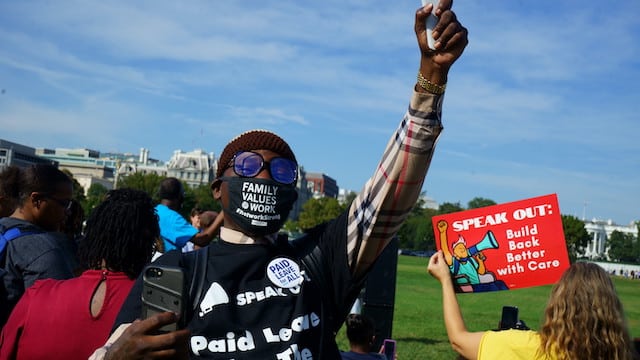Home With the Flu? 20 Years of the Family Medical Leave Act

Tuesday is the 20th anniversary of theFamily and Medical Leave Act. During those 20 years, it has been used more than 100 million times by employees caring for new babies, tending sick parents and spouses, and coping with illness.
Nearly every reader of this blog has experienced, or can imagine, a moment when going to work is impossible. Anything from a bout of norovirus to cancer treatment and car accidents can leave us scrambling, and any one of us, at any moment, could get a phone call that changes our relationship to work and family momentarily or for months to come. Readers in many professions can feel confident that if the school nurse calls this afternoon, they can find a way to collect a sick child without also finding themselves out of work. Many people don’t have that confidence.
Half the work force isn’t covered by the F.M.L.A., because the employees work part time or their employer has fewer than 50 workers. Every organization that lobbies on behalf of those workers has collected many stories of employees told to come to work now, or don’t ever come back, when calling to explain an absence due to surgery or a vomiting child, or to ask permission to go to the doctor. In 2008, researchers at the University of Chicago found that 17 percent of respondents to a national survey regarding sick-leave policiessaid that they had lost a job, or been told that they would lose a job, if they took time off for personal or family illness. And leaves taken under the F.M.L.A. are unpaid (unless an employer has a different policy). Employees who are eligible for leave may not be able to afford to take it.
Organizations like the National Partnership for Women and Families andFamily Values @ Work continue to push for expansion of the laws protecting working parents and their families. An election eve survey commissioned by the N.P.W.F. found bipartisan support for laws ensuring workers the right to earn paid sick days and “creating a system of family and medical leave insurance”: 86 percent of respondents who supported both candidates considered it important, and 63 percent called it “very important.”
“We have huge changes in the the work force,” Ellen Bravo, president of Family Values @ Work, said. “We don’t have many families with wives at home full time to take care of all the people who need care. Just as workplaces adjusted to the fact that people have heart attacks and gall bladder surgeries, we need to to adjust to the fact that people have babies and folks who are dying and need care.”
Right now, she told me, the momentum lies with the states and local communities pushing for something as simple as mandated paid sick leaves. Only Connecticut and cities like San Francisco, Washington, D.C., Milwaukee,Seattle and Long Beach, Calif., have passed laws requiring paid sick leave for some employees. Philadelphia, New York, Portland, Ore., Maryland andMassachusetts are considering similar legislation. But paid sick days alone don’t expand the F.M.L.A.’s impact to everyone who needs it. Finding politically viable and economically feasible ways to help working parents ensure that every family crisis isn’t also a financial crisis is not simple.
“No one should have to choose between the job they need and the family they love,” Ms. Bravo said. “The importance of the F.M.L.A. was that it established that principle. People should be able to be what they want to be: responsible employees and responsible family members.” The F.M.L.A. and its offshoots are intended to give everyone the best chance they can have at doing both.